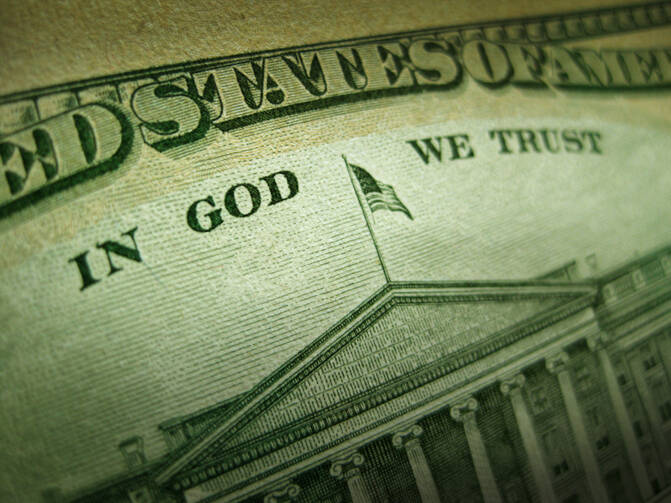Pope Francis takes the title of his encyclical “Laudato Si’” from a hymn of praise written by Francis of Assisi. He speaks in rhapsodic terms of the God of creation and ends with a mystical prayer. This is the gentle, simple beauty of the document. Yet there is another side to the encyclical. It was written not only to praise the true God, but to scoff at false ones. It not only writes a loving icon, it smashes idols.
Pope Francis believes that we have made gods of progress and the market. This is why his denunciations of them are so vigorous. Even if (as experts will continue to explain in the weeks ahead) his specific criticisms are in the main either trivially true, meaningless, or false, we can still see their purpose. They exist to scandalize those who have taken the creations of man and called them gods. The purpose of blasphemy is to dispute divinity, and Francis’ denunciations of the market and progress fill precisely this function.
It is important that we recognize this element of the encyclical, or we risk missing its meaning. Writing here at America, Nathan Schneider wonders if the column I wrote on “Laudato Si’” for the Washington Post is “an expression of loyalty that meanwhile does the work of opposition,” one in which “seizing on the document’s darker passages” becomes a way of criticizing it. I inserted very little of my own opinion into the column, so I understand Schnedier’s puzzlement. My aim in stressing these elements was to make sure that those who worship the false gods Francis attacks do not miss his meaning. He is the Charlie Hebdo of technocratic idols, and nothing is furthered if we paint him as another kindly churchman. While I do have questions and reservations about some elements of “Laudato Si’,” for its attack on false idols I have nothing but praise.
Of course, many people will deny that we have made an idol of either progress or the market, but many of those same people have reacted to “Laudato Si’” in a way that very nearly proves Francis’ point. If this were merely a dispute over empirical questions, calmness could prevail. But many of those most rankled by Francis’ criticism of the market are acting as though he had just called their mother a dirty name—or taken their lord's name in vain. Many do not react so viscerally but still would refuse to offer such criticism themselves. They respect their neighbors’ god even if he is not their own; they are willing to admit to the pantheon deities they do not worship. Francis will have none of this, and neither should we.
Imagine a town of people who live beside a river and, depending on it both as a trade route and a source of silt deposits, worship it as a deity. When weather reports show that the river will flood the town unless drastic action is taken, some say that nothing should be done. The will of the river god cannot be gainsaid, they claim. After all, he will flood them one day anyway. The fact that the flooding will be exacerbated by the decision of the town’s rulers to build up levees along the river’s bank and by their failure to reinforce old dams is waved away by these devotees as a mere irrelevance. Human responsibility is denied; the supposed power of the deified river is magnified. This is how Francis sees the onslaught of the progress and the market. They are threats to our very existence that can be prevented only if we stop worshipping them. They can also be means by which we enjoy life but, again, only if we stop worshipping them.
To heed Francis’ call does not mean—as he readily recognizes—that we seek to undo all progress or reject markets wholesale. Instead, it means realizing that what we call “progress” and “the market” are the results of human agency susceptible to criticism and adjustment like any other set of human actions. It means not initiating a taboo response any time they are criticized. Instead, we must put our trust only in the God of creation. This trust provides part of the answer to Schneider’s question about how I can see Francis as a pessimist. I do think he is a pessimist, but I also think he is possessed of a great hope in Christ. This is this hope that buoys ”Laudato Si’” and that moved Schneider to tears and me to wordless wonder.
Matthew Schmitz is deputy editor of First Things.








